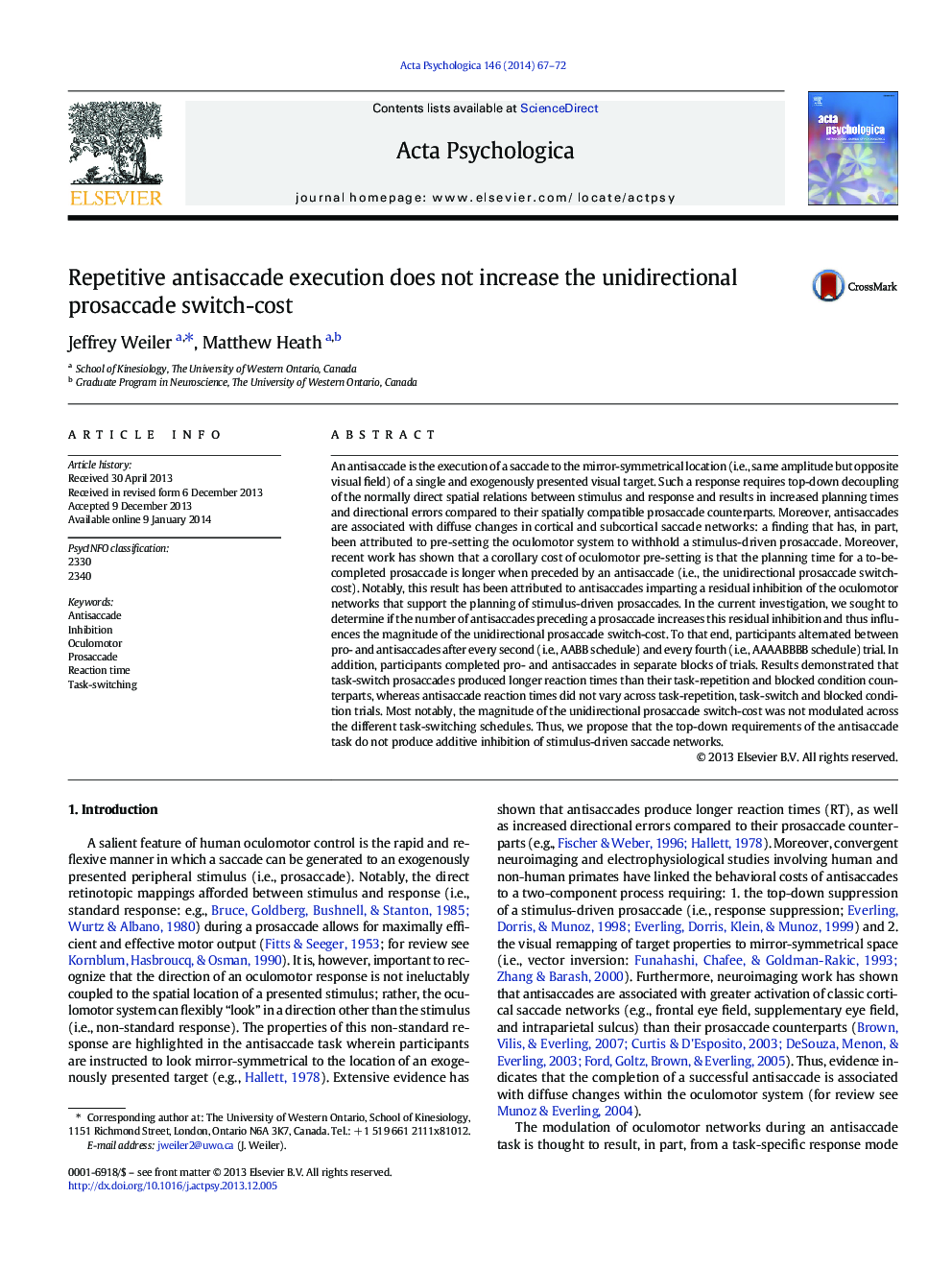| کد مقاله | کد نشریه | سال انتشار | مقاله انگلیسی | نسخه تمام متن |
|---|---|---|---|---|
| 7278017 | 1473612 | 2014 | 6 صفحه PDF | دانلود رایگان |
عنوان انگلیسی مقاله ISI
Repetitive antisaccade execution does not increase the unidirectional prosaccade switch-cost
ترجمه فارسی عنوان
اجرای ضد تکراری باعث افزایش هزینه سوئیچینگ یک طرفه می شود
دانلود مقاله + سفارش ترجمه
دانلود مقاله ISI انگلیسی
رایگان برای ایرانیان
کلمات کلیدی
موضوعات مرتبط
علوم زیستی و بیوفناوری
علم عصب شناسی
علوم اعصاب شناختی
چکیده انگلیسی
An antisaccade is the execution of a saccade to the mirror-symmetrical location (i.e., same amplitude but opposite visual field) of a single and exogenously presented visual target. Such a response requires top-down decoupling of the normally direct spatial relations between stimulus and response and results in increased planning times and directional errors compared to their spatially compatible prosaccade counterparts. Moreover, antisaccades are associated with diffuse changes in cortical and subcortical saccade networks: a finding that has, in part, been attributed to pre-setting the oculomotor system to withhold a stimulus-driven prosaccade. Moreover, recent work has shown that a corollary cost of oculomotor pre-setting is that the planning time for a to-be-completed prosaccade is longer when preceded by an antisaccade (i.e., the unidirectional prosaccade switch-cost). Notably, this result has been attributed to antisaccades imparting a residual inhibition of the oculomotor networks that support the planning of stimulus-driven prosaccades. In the current investigation, we sought to determine if the number of antisaccades preceding a prosaccade increases this residual inhibition and thus influences the magnitude of the unidirectional prosaccade switch-cost. To that end, participants alternated between pro- and antisaccades after every second (i.e., AABB schedule) and every fourth (i.e., AAAABBBB schedule) trial. In addition, participants completed pro- and antisaccades in separate blocks of trials. Results demonstrated that task-switch prosaccades produced longer reaction times than their task-repetition and blocked condition counterparts, whereas antisaccade reaction times did not vary across task-repetition, task-switch and blocked condition trials. Most notably, the magnitude of the unidirectional prosaccade switch-cost was not modulated across the different task-switching schedules. Thus, we propose that the top-down requirements of the antisaccade task do not produce additive inhibition of stimulus-driven saccade networks.
ناشر
Database: Elsevier - ScienceDirect (ساینس دایرکت)
Journal: Acta Psychologica - Volume 146, February 2014, Pages 67-72
Journal: Acta Psychologica - Volume 146, February 2014, Pages 67-72
نویسندگان
Jeffrey Weiler, Matthew Heath,
